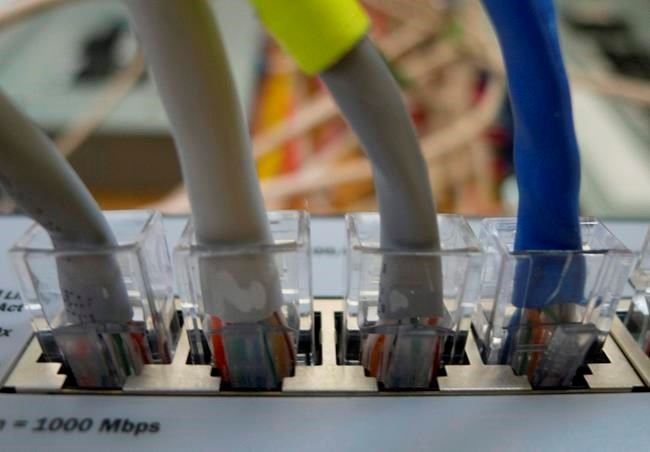OTTAWA — The federal government's slow rollout of high-speed internet to rural areas is putting First Nations at an economic disadvantage while billions of dollars earmarked to fix the issue remains untouched, says Canada's auditor general.
The lack of internet access continues to exclude First Nation reserves from accessing education, work and medical or government services online, Karen Hogan says in a report released Monday — despite there being billions of dollars in last year's budget to address their needs.
"Internet and mobile services is not equal for all Canadians," reads the audit report, which analyzed data from 2018 to 2021.
On First Nations, about 43 per cent of households have high-speed internet, while 91 per cent of households across Canada do. In rural and remote areas, about 60 per cent have access to high-speed internet.
The audit found that the federal government is failing to account for affordability, because it is only "focused on price, without considering income."
"Price alone does not indicate whether a Canadian household can afford Internet or mobile cellular service" says Hogan's report.
"Connectivity, if unaffordable or of poor quality, is no more of an improvement to the lives of Canadians living on First Nations reserves or in rural and remote areas than having no connectivity at all."
But the government isn't just behind on its target to improve internet access for First Nations and rural residents. It's also behind on rolling out available money to fix the issue, the audit found.
"They're not spending what they planned for each year," Hogan said at a press conference Monday.
"It is really, in my view, because of Innovation, Science and Economic Development Canada and (the) Canadian Radio-television and Telecommunications Commission's slowness in approving projects."
Since 2015, $2.4 billion was made available for use before March 31, 2023 to help improve internet and cell service for Canadians, but the government has only spent 40 per cent of that money, or less than $1 billion.
Another $2 billion was earmarked to support large-scale connectivity infrastructure projects by providing loans or equity financing.
"Being connected is no longer a luxury but a basic essential service for Canadians. This fact became more apparent as a result of the COVID-19 pandemic, which transformed how many Canadians live, work, and learn," Hogan's report says.
"Without access to fast, reliable, and affordable high-speed internet and mobile cellular services, people residing in remote communities do not have the same opportunities as people residing in more urban areas."
Dan Mazier, the Conservative party's critic for rural economic development and connectivity, said the report paints a poor picture.
"Over one million rural households still have no access to high-speed internet, as well as over half our First Nations across this country still have no access to high-speed internet," Mazier said Monday.
"This digital divide exists despite billions of dollars of funding announcements."
The federal government had committed to connecting 90 per cent of Canadians to high-speed Internet by 2021, 98 per cent of Canadians by 2026 and 100 per cent by 2030.
Their stated goal is to equip households with a minimum speed of 50 megabits per second for downloads and 10 megabits per second for uploads.
Minister of Rural Economic Development Gudie Hutchings said the Liberal government is willing to implement recommendations from the auditor general in order to improve remote connectivity.
She said that since the Liberals took power in 2015, more than two million additional households have gotten access to better internet.
"To continue this momentum, our government will ensure that the recommendations in the audit are implemented to guide future initiatives and bolster those already underway," she said.
This report by The Canadian Press was first published March 27, 2023.
Mickey Djuric, The Canadian Press
Note to readers: This is a corrected story. A previous version said the report's findings covered the period between 2018 and January.



